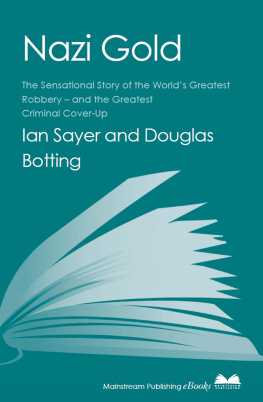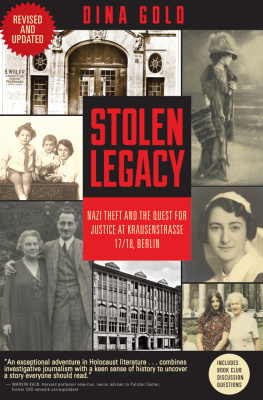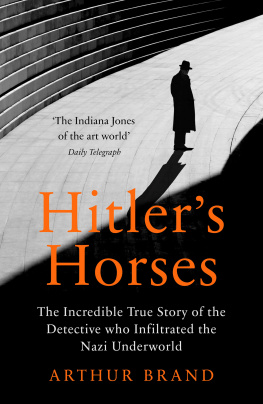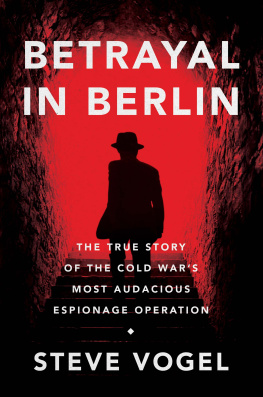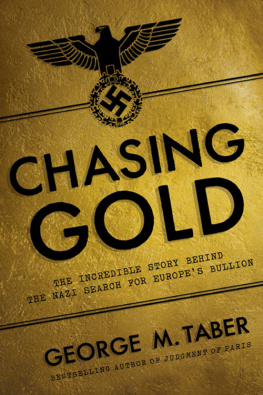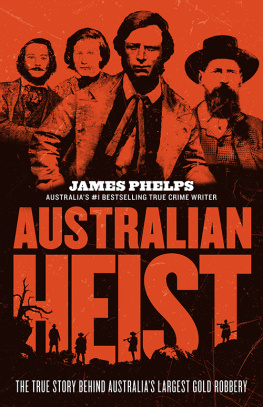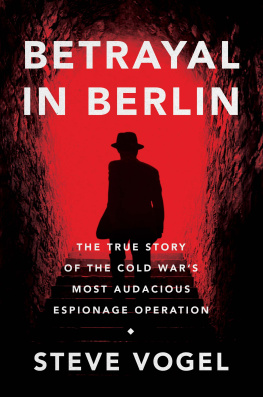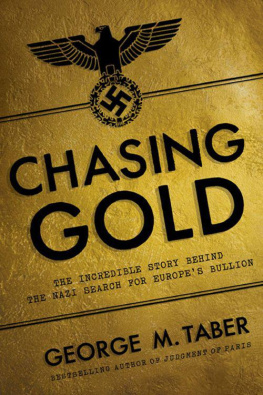Contents
Also by Douglas Botting
Humboldt and the Cosmos
The Second Front (1981)
Aftermath in Europe (1985)
In the Ruins of the Reich (1985)
Gavin Maxwell A Life (1983)
Also by Ian Sayer and Douglas Botting
Hitlers Last General (1989)
Americas Secret Army (1989)
About the Authors
Ian Sayers interest in Nazi Gold was first aroused by the Guinness Book of Records account of the greatest robbery of all time. A transport executive and one-time truck-driver and insurance clerk, Sayer began his research at Christmas 1974. During the next nine years his enquiries as an unofficial private investigator led across three continents and resulted in several hundred hours of recorded interviews and forty feet of files containing over 50,000 documents. By the end he had not only assembled one of the largest private archives of original World War II documents in the country but had cracked the secrets of Nazi gold.
Douglas Botting is a writer whose previous books reflect his interest in travel, exploration and 20th-century war. He has accompanied expeditions to Socotra, the Sahara, the Amazon and Arctic Siberia, and was an exploration film-maker for the BBCs World About Us. He became a full-time writer with the publication of his highly praised biography, Humboldt and the Cosmos, in 1972, and in more recent books The Second Front and Aftermath in Europe he has pursued his interest in wartime and post-war German history. He is at present engaged on a biography of Gerald Durrell.
In 1964 the Sunday Times assigned its Insight Team the task of tracking down the Nazi escape organisation ODESSA and the source of its seemingly unlimited funds. Later the team made their resources available to the authors of Nazi Gold, along with the investigative talents of a number of senior journalists.
NAZI GOLD
The Sensational Story of the Worlds Greatest Robbery and the Greatest Criminal Cover-up
Ian Sayer and Douglas Botting
This eBook is copyright material and must not be copied, reproduced, transferred, distributed, leased, licenced or publicly performed or used in any way except as specifically permitted in writing by the publishers, as allowed under the terms and conditions under which it was purchased or as strictly permitted by applicable copyright law. Any unauthorised distribution or use of this text may be a direct infringement of the authors and publishers rights and those responsible may be liable in law accordingly.
Epub ISBN: 9781780574271
Version 1.0
www.mainstreampublishing.com
First published in Great Britain by Granada Publishing 1984
Copyright Ian Sayer and Douglas Botting, 1998
All rights reserved
The moral right of the authors has been asserted
First published in Great Britain in 1998 by
MAINSTREAM PUBLISHING COMPANY (EDINBURGH) LTD
7 Albany Street
Edinburgh EH1 3UG
ISBN 1 84018 785 9
This edition, 2003
No part of this book may be reproduced or transmitted in any form or by any means without written permission from the publisher, except by a reviewer who wishes to quote brief passages in connection with a review written for insertion in a magazine, newspaper or broadcast
A catalogue record for this book is available from the British Library
This book is dedicated to the memory of Herbert Herzog
Introduction
The robbery of the German Reichsbank, the State Bank of the Third Reich, in 1945 was not only the biggest robbery in history but for many years the least known to the world at large.
The Nazi era inspired almost as many myths of gold and treasure as the buccaneer days of the Spanish Main myths of SS loot at the bottom of Alpine lakes, of sunken U-boats stuffed with jewels, of Rommels gold buried beneath the Libyan sands. A few of these legends have a basis in fact as, for example, those surrounding Lake Toplitz in Austria. Millions in counterfeit English pound notes were recovered from this deep lake in the Tyrol some years ago, and at the time of writing more mysterious treasure chests have been sighted on the lake bed, lying beside the wreckage of a German aircraft, whose pilot has remained perfectly preserved in the highly saline water. Probably it is to Lake Toplitz that most peoples minds turn at the mention of Nazi treasure. But Nazi Gold is about a very different kind of treasure, and its subject is a story which has lingered for years in the half-light of rumour and speculation the disappearance of millions of dollars worth of gold and currency from the Reichsbank reserves buried somewhere in the mountains of Bavaria.
In the chaos of the German collapse at the end of the Second World War, and in the administrative confusion of the American occupation that followed, such facts as were known about the loss of part of the Reichsbank reserves were largely ignored, and belated efforts by the American military and German civil authorities to put two and two together in the post-war years were dogged by ignorance of what had gone missing, by lack of co-ordination between investigative agencies, and by the total disappearance of key witnesses from the scene.
The first public utterance on the subject of Reichsbank treasure seems to have been an article by Henriette von Schirach (the wife of Hitlers former Youth Leader) entitled What Happened To The Reichsbank Gold?, which appeared in the now defunct picture magazine, Wochenend, in 1950. This article at least posed the right questions, even if it did not actually answer them, and it seems to have provoked the Munich CID of the Bavarian Police to carry out their own investigation into certain aspects of the case. But even they had only limited facts at their disposal, and they were unable to bring any prosecutions and never made their report public.
While the CID investigation was in progress, the story was taken up again by a German journalist, Ottmar Katz, in an article Where is the Gold from the Walchensee? which appeared in Quick magazine in 1952. Before long this came to the attention of an English writer, William (Billy) Stanley Moss, who began his own private investigation into the Reichsbank robbery and its aftermath. The resulting book, Gold Is Where You Hide It, was published in London in 1956. It was incomplete and in parts misleading. But it was the first attempt at a coherent account of the Reichsbank affair and the first to appear outside of Germany. Indirectly it was to lead to this present more definitive history.
Billy Moss, author of a bestselling war adventure, Ill Met By Moonlight (an account of his part in the daring kidnapping of the commander of the German Forces in Crete), first stumbled on the Reichsbank robbery through an intermediary a Polish-born, naturalised Briton by the name of Andrew Kennedy. During the war Andrew Kennedy had served as the head of an escape organisation in Hungary, and later as a member of the British resistance organisation, SOE. After the war he lived and worked as a businessman in Germany, forming a wide circle of friends, which included not only Billy Moss but two inhabitants of the Bavarian mountain resort of Garmisch-Partenkirchen Gusti Stinnes and her English husband Eric Knight. It was from Eric and Gusti Knight that Kennedy and Moss first got wind of the story of the Reichsbank treasure.
Billy Moss laboured under several disadvantages. He was not in the best of health, nor did his financial resources stretch as far as a project of this scope required. Above all, he was denied any kind of co-operation from the United States authorities, whose various archives it was thought might contain vital information about the Reichsbank robbery. Indeed, the US government denied, and have continued to deny, that such a robbery ever took place or that any US Army personnel had any part in it or the events that followed. The archives, the government maintained, possessed no records that bore on such a case. Denied the crucial documentation the investigation needed, Mosss book was inevitably somewhat skimpy and speculative. Nevertheless, it got commendably near to the heart of the matter, and for nearly thirty years it was to remain the best attempt at a solution to the mystery of what happened to the Reichsbank treasure.

